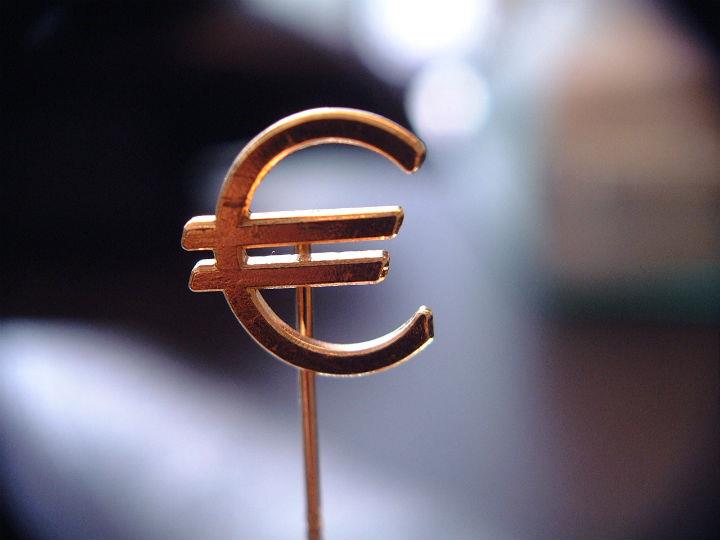by Radu G. Magdin*
The often-unsaid truth of European business is that it is shockingly concentrated in a relatively small number of families. Part of that is by design. First, Europe has tended to prefer bank financing as opposed to equity financing, which tends to favour incumbents because stable, established business will enjoy a lower cost of capital than any challengers, enough to, at the very worst, make founders an offer they can’t refuse. Secondly, while the Anglo-Saxon world tends to have fairly punitive inheritance laws as well as corporate compliance regulation, Europe in general is less taxing – the German old money being the best-known example.
This has actually worked out rather well for Europe as a whole, at least in the past. Bank financing focused on a handful of companies facilitated the post-war economic boom, and while it restored the fortunes of many plutocrats, it enabled a continent decimated by war to quickly recover and turn from what may have been a struggling group of former rivals slowly drifting towards the Soviet Union into a cohesive, prosperous place Soviet citizens ran towards. Likewise, while a certain bonhomie relating to inheritance taxes and at times Byzantine corporate structures may be looked down upon, that would be overly optimistic. For a significant period of time, it did enable a social model of low unemployment despite high welfare payments and protected companies from foreign takeover. Not ideal, but it suffices to say a lot of the Thatcherite criticism of its day proved wishful thinking.
However, the key to each success was never bank financing, or state and business ‘cooperation’ or any particularly European recipe of success. Each time, the key was globalisation. In fact, had these not happened in the context of rapid globalization, it is quite likely they would have failed.
Today, Europe faces succumbing to what Donald Sull called ‘active inertia’. In his seminal article in Harvard Business Review, from 1999 but very much of relevance in an otherwise fast pace business world, he describes the phenomena of successful business, with every advantage at their disposal, failing to make the best of a changing environment and failing spectacularly. What needs to be stressed, using perhaps more recent terminology, is that this is not a matter of blank swan events suddenly making dinosaurs redundant. Quite the contrary, these are ‘grey rhino’ events: seen from afar, whose path may be easily extrapolated from their current trajectory. In other words, these companies were sitting on the tracks. Moreover, they were sitting on the tracks while fully cognisant of the danger and very much exercised by it. That’s the active part. But instead of actually moving, they circled ever more frantically.
Europe’s business and the families behind them are currently doing the same thing. Not for not trying. That’s where the ‘active’ part comes in. Far from doing nothing, Europe is abuzz with every initiative one can think of: the cacophony emanating from Brussels actually matching what is happening all across the boardrooms of European great companies. The Wirecard scandal is perhaps emblematic of this: the shine of an EU-grown fin-tech success story was so captivating that it blinded everyone of the stark accounting irregularities. In other words, European business and the great families behind it aren’t wistfully looking into the sunset. European business is trying. And failing!
One may argue that the reason for this is quite simple: it overlooks a key factor in previous successes. It wasn’t actually an educated workforce, as armies of university-educated baristas can attest to. Nor was it government support in and of itself, as so many Southern European emigrating away from corruption can attest to. Instead, it was globalisation – waves of it, to be specific. To date, there were three great waves of globalisation which lifted European business’ boat and turned what could have been failing models into successful ones. Each time, in the 1950s, in the 1990s and in the early 2010s the model started breaking down. Each time, a wave of globalisation turned rot to growth.
The First Globalisation happened not late after the war. While it is often overstated how damaged Europe’s infrastructure actually was, it suffices to say that growth came from rubble. Export competitiveness and access to American markets thus proved critical, in a model that would show up in Japan not late after. Without those markets and technological competition, the compact of state employment and investment in exchange for bank and government support may have ended up enriching would-be plutocrats rather than create an economic boom.
The Second Globalisation came with the fall of the Berlin Wall. By then, European businesses weren’t actually doing that well. Germany, the oft-touted example for many, was actually labelled sick man of Europe. Ageing populations, inflexible labour markets, corruption, a bloated administrative class, high taxes – Europe seemed to be going into the millennium rather poorly. But then, overnight, a whole new host of markets just opened up for European largest businesses. Not only that, but a cheap and relatively highly skilled labour force just became available: STEM shortages were met overnight, union demand quieted, global value chains became the norm and, suddenly, sclerotic Europe facing 80s malaise became the dynamic continent launching the Euro and, the talk of the time, challenging the United States in a multi-polar world.
It suffices to say much of it elicits a smile in retrospect. Soon, the inflow of labour and outflow of export goods was sufficient, and the model started wobbling again. Simply put, when everybody in Eastern Europe has sent back enough remittances to buy a VW Polo, what then? That’s when the Third Globalisation came in. By 2001 China was a member of the Word Trade Organisation and two things happened. First, a giant market opened up. Europe could be kept busy producing Polos all year. As Ferdinand Piech, patriarch of the VW Group, is quoted to have said: “We’re going to get the Chinese off bicycles”. Moreover, a government eager to accommodate Western factories enabled globe-spanning value chains to coalesce in Chinese clusters. It should not be much of a surprise that Angela Merkel found itself at the opening of the first Confucius Institute in Germany in a smiling mood: with EUR 206 billions of trade, China is Germany’s largest trade partner. Secondly, China’s current account surplus, as with much of Asia’s, ended up as cheap credit for Europe. Encouraged, investors bet on the convergence of Southern and Northern debt, fuelling a credit boom in Southern Europe, which proceeded to spend it fuelling Europe’s great conglomerates. It was a good time to be selling French luxury brands, Italian fashion or German cars. Much of those are over.
The First Globalisation has duly run its course. Despite the seemingly secular levels of affective partisanship in the United States, aversion to trade is one of the few things both Republicans and Democrats can agree on. The First Globalisation is now mostly coming in terms of NATO bills, offers of dearly uncompetitive prices LNG supplies under the guise of energy independence as well as the export of culture wars. The Second Globalisation has also run its course. Deutsche Bank expects Eastern Europe to face declining growth as an ageing population and falling levels of investment take their toll. Meanwhile, as McKinsey predicts, healthcare costs are set to soar by over 50% over the next decade even as otherwise often meagre pensions remain underfunded. East European labour cannot compensate for Western Europe’s ageing population and it seems to have already purchased all the VW Polos it will ever need. The Third Globalisation is also running out of steam. First, China’s Made in China 2035 project as well as massive investment in everything from renewable energy to electric cars has ensured that even as it rebalanced towards a consumer-oriented economy, those consumers will buy Chinese, not European. Moreover, instead of sub-zero interest rates, China is choosing to invest in its Belt and Road projects which help many of the world’s future giants leapfrog ahead.
Already, in 2020 ASEAN has overtook the EU-27 as China’s main trading partner even as China’s rapid recovery from the pandemic means it has become the EU-27’s main trading partner. Indeed, PwC predicts that by 2050, EU-27 will amount to little over 9% of global GDP at PPP. In other words, as Ferdinand Piech hoped would happen, the Chinese have indeed gotten off bicycles. Into Chinese-mad electric cars.
Now, European business is repeating the recipe of success from its past, most pro-activity. Significant investment in R&D, green development and digitalisation are the key words in Brussels and boardrooms alike. But without another wave of globalisation, they may amount to little more than active inertia.
*strategist on Leadership, Communications, Competition & Risk. A member of Forbes Business Councils, he authors the forthcoming book "Global Europe & Global Romania as Crisis Solutions"




 By: N. Peter Kramer
By: N. Peter Kramer
